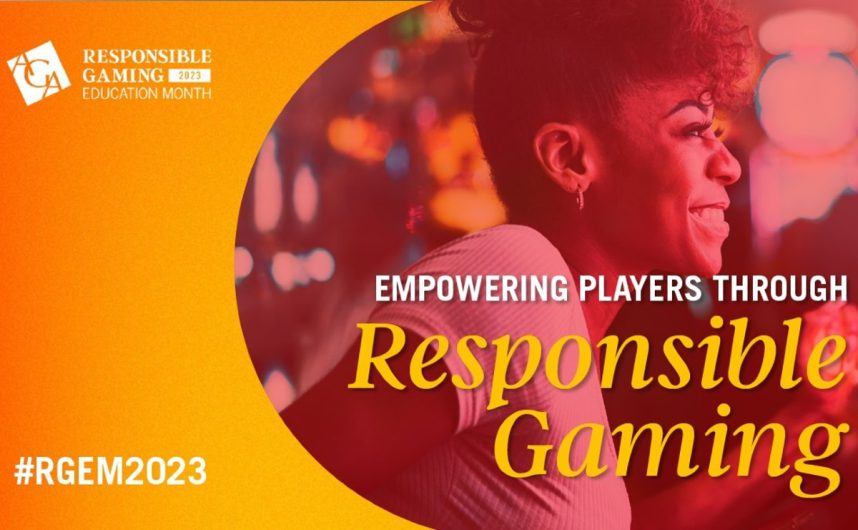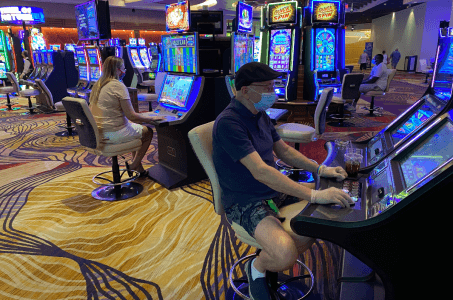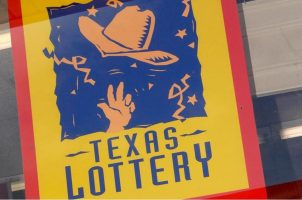Responsible Gaming Messages Resonating With US Public, New Survey Finds
Posted on: September 5, 2023, 01:09h.
Last updated on: September 5, 2023, 07:23h.
September marks Responsible Gaming Education Month (RGEM), an annual initiative from the American Gaming Association.

The preeminent casino lobbying group in DC kicked off the month that promotes gaming literacy and consumer education — the 25th RGEM installment — with insights into how responsible gaming messaging is resonating with gamblers. The AGA contracted YouGov, a market research and data analytics firm based in the UK, to survey US gamblers about their knowledge of responsible gaming resources.
YouGov polled 2,018 US adults who gambled at least once in 2022 and found that more than eight in 10 (84%) are aware of a responsible gaming program. Knowledge of responsible gaming resources balloons to 91% for gamblers who specifically bet on sports.
Our industry’s success is based on earning customer trust, providing safeguards for responsible gaming, and implementing tools that our customers engage to bet responsibly,” said AGA Vice President, Responsibility Cait DeBaun. “Today’s data shows our united effort to elevate responsible gaming is clearly resonating with players and shaping a safer gaming landscape.”
Responsible gaming continues to grow in importance as gaming has expanded significantly across the US in recent years. Commercial and/or tribal casinos operate in 44 states. Sports betting is legal and operational in more than 30 states, and iGaming is live in six.
Along with RGEM, the National Council on Problem Gambling designates March as its annual Problem Gambling Awareness Month.
Programs Impactful
All states where commercial casinos are legal require that operators provide or fund resources to help players whose behaviors spiral out of control. The YouGov probe found that over three quarters of gamblers believe the industry’s current responsible gaming programs provide effective treatment for those in need.
In Pennsylvania, for instance, which is today the second-richest gaming state in the nation behind Nevada, the state Gaming Control Board offers an array of programs through a state-operated website, responsibleplay.pa.gov. The platform provides an online tool for gamblers to determine if they have a gambling problem and various ways problem gamblers can seek and receive help.
Most states also offer self-exclusion options. In Pennsylvania, gamblers can self-exclude themselves from brick-and-mortar casinos, iGaming, sports betting, and video gaming terminals (VGTs).
“Responsible gambling is a top priority for the Pennsylvania Gaming Control Board,” said Kevin O’Toole, PGCB executive director. “The Board’s Office of Compulsive and Problem Gambling works diligently to provide assistance to individuals who are unable to keep their gambling at a responsible level.”
Most responsible gaming programs are free or offered at a low cost.
Useful Tools
The gamblers polled in the American Gaming Association study reported that various problem gaming resources have helped in limiting their play.
Eighty-five percent said utilizing deposit limits is an effective way to encourage responsible play. Time limits (78%) and betting limits (77%) were also cited as popular tools abetting responsible participation.
“Learning about odds, randomness, and how the games work helps you make informed gambling decisions,” the GameSense website asserts.
Related News Articles
Connecticut Satellite Casino Blueprint Leaves Some Locals Underwhelmed
Norfolk Casino Ballot Referendum Campaign Underway, City and Tribe ‘All-In’
Sahara Las Vegas, Grand Sierra Resort Reno to Pay $75K COVID-19 Fine
Most Popular
Casinos That Were Never Casinos
Most Commented
-
End of the Line for Las Vegas Monorail
— April 5, 2024 — 90 Comments -
Mega Millions Reportedly Mulling Substantial Ticket Price Increase
— April 16, 2024 — 9 Comments -
Long Island Casino Opponents Love New York Licensing Delays
— March 27, 2024 — 5 Comments
















No comments yet